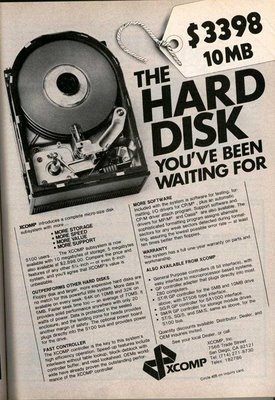Appeals Court Upholds Default Judgment for Discovery Violations, Including Wiping Files from Laptop: eDiscovery Case Law
In Trude et. al. v. Glenwood State Bank, et. al., Nos. A15-0378, A15-1863, A15-1864 (Minn. App., Aug. 15, 2016), a Minnesota Appeals Court affirmed the trial court’s entry of default judgment for repeated discovery violations, including using data wiping software to permanently delete more than 20,000 files from a laptop just hours before it was turned over for forensic examination.
Case Background
This case originally began when the bank tried to repossess earthmoving equipment and other property in 2011 from one of the parties, which resulted in a lawsuit against the bank by two other parties (Trude and his company JBI, claiming that they owned the property). A series of counterclaims and third party complaints continued over years of litigation. The defendant had a contentious discovery history with plaintiffs JBI and Trude, with those plaintiffs not answering the defendant’s interrogatories or document requests for two months after an extended deadline, so the defendant moved to compel discovery and sought sanctions. JBI and Trude responded to the interrogatories immediately before the hearing on the defendant’s motion, but the court found their response untimely without excuse and sanctioned Trude individually to pay the defendant’s costs in bringing the motion.
The defendant’s discovery conflicts with JBI and Trude continued, and the defendant again sought the court’s involvement. In August 2014, the district court ordered Trude to allow the defendant to take JBI’s business laptop offsite to forensically analyze it. JBI turned the computer over, but the defendant’s forensic analyst determined that, just hours before the laptop was picked up, someone had used data-wiping software to permanently delete more than 20,000 files from the computer.
In November 2014, the court found that Trude intentionally destroyed evidence to keep it out of the defendant’s hands and both JBI and Trude were held in contempt for destruction of evidence and their claims were dismissed. The court also ordered JBI and Trude to show cause for their continued failure to disclose projects the earthmoving equipment was used on and warned them that their Answer could be dismissed if they failed to comply. When they did not, the court ordered their Answer stricken and entered a default judgment against them, noting JBI and Trude’s continued failure to provide timely discovery responses, their intentional attempt to prevent the defendant from knowing the earthmoving equipment’s location, Trude’s repeatedly making contradictory statements and engaging in perjury, Trude’s bad-faith failure to comply with orders, and the destruction of data on the laptop. JBI and Trude appealed.
Appellate Court Ruling
The appellate court stated that “Simply put, Trude’s discovery violations were not isolated and clearly reflect a pattern to obstruct litigation tactically and to avoid disclosure”, noting that the “district court consistently found no justification for Trude’s violations.” Going further, the court noted in its ruling:
“When the district court first sanctioned Trude on December 20, 2013, it found his failure ‘inexcusable’ and intentional. When it held Trude in contempt, the district court found that he acted in bad faith and flagrant disregard for the court’s order. And when it struck JBI and Trude’s answer, it found that Trude failed to justify the nondisclosure, had acted in bad faith, provided misleading or untrue information, and testified falsely. All of the district court’s findings on Trude’s misconduct, willfulness, and unpersuasive justifications are abundantly supported by the record. For one example, the record informs us that the computer-wiping program had been installed and run at 2:39 a.m. on the morning that Trude turned the laptop over to Glenwood, and the wiping program itself had then been deleted without any disclosure to Glenwood, let alone any justification.”
As a result, the court affirmed the district court ruling.
So, what do you think? Should the wiping of the laptop alone be enough for a default judgment? Please share any comments you might have or if you’d like to know more about a particular topic.
Disclaimer: The views represented herein are exclusively the views of the author, and do not necessarily represent the views held by CloudNine. eDiscovery Daily is made available by CloudNine solely for educational purposes to provide general information about general eDiscovery principles and not to provide specific legal advice applicable to any particular circumstance. eDiscovery Daily should not be used as a substitute for competent legal advice from a lawyer you have retained and who has agreed to represent you.




